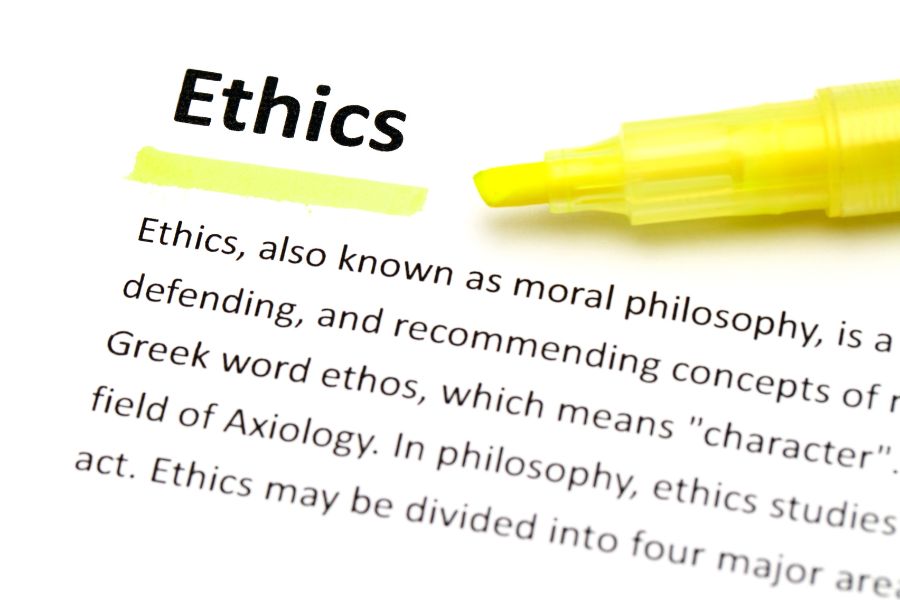If you’re a REALTOR®, you’ve probably heard about the real estate Code of Ethics more times than you can count. But beyond the classroom, what does it actually look like in your day-to-day?
Here’s a breakdown of what the code of ethics covers, why it matters, and how to make it work in real life.
The REALTOR® Code of Ethics at a glance
First adopted in 1913 and refreshed regularly, most recently effective June 5, 2025, the REALTOR® Code of Ethics is the rulebook every member of the National Association of REALTORS® (NAR) agrees to play by. Its purpose hasn’t changed: to set a higher standard for professionalism in real estate.
Who must follow the Code? Every REALTOR® — that’s anyone who joins NAR, including REALTOR‑ASSOCIATE®s, plus any licensees who want to market themselves with the REALTOR® “R.”
What’s actually in the Code? The Code has 17 articles, grouped into three main categories:
- Duties to Clients & Customers (Articles 1-9)
- Duties to the Public (Articles 10-14)
- Duties to REALTORS® (Articles 15-17)
Together, they cover just about everything: honesty in listings, cooperation with other agents, fairness in advertising, respecting exclusive agreements, and staying far, far away from discrimination or shady commission deals.
The Code is often stricter than local or federal law. So even if something isn’t technically illegal, it could still be unethical under the Code. If that sounds intense, it’s because it is! And that’s a good thing.
The 3 core sections of the code
The REALTOR® Code of Ethics has 17 articles, but it’s not as overwhelming as it sounds. Everything is grouped into three buckets, which makes it easier to understand how it all fits together.
Duties to Clients & Customers
This section (Articles 1-9) is about taking care of the people you work with directly: buyers, sellers, landlords, and tenants. It covers things like putting your clients’ interests first, disclosing what you know, handling offers promptly, and being upfront about how you get paid.
Put simply, don’t cut corners, and don’t ghost anyone.
Duties to the Public
Articles 10-14 are about protecting the public at large. That means no discrimination (ever!), always staying truthful when advertising (no puffed-up stats or doctored photos), and cooperating with investigations or professional standards hearings when needed.
Duties to REALTORS®
Articles 15-17 govern how agents treat each other. No trashing competitors, respect exclusive relationships, and arbitrate commission disputes instead of dragging everyone to court. Basically, compete hard, but stay professional.
Why ethics matter in real estate
Here’s the truth: real estate doesn’t work without trust. Clients might not know every article in the real estate code of ethics, but they can tell when they’re working with someone who walks the walk.
Agents are invited into people’s lives at some of their most stressful (and expensive!) moments. If clients don’t believe that agents are acting in their best interest, everything falls apart fast. And that’s why ethics are the guardrails that keep you (and your deals) out of the ditch. They:
- Build credibility: Referrals and repeat business only happen when people feel safe with you.
- Reduce risk: Clear disclosures and honest marketing mean fewer complaints, fines, and lawsuits.
- Keep deals moving: When everyone plays fair, cooperation is easier and closings are smoother.
- Protect communities: Fair housing isn’t just a checkbox — it’s how we make sure opportunity isn’t gated by bias.
- Elevate your business: Plenty of agents have a license, but not everyone operates at a higher standard.
Fair Housing in Real Estate: A Guide for Agents & Brokers
Real-world scenarios: Ethical vs unethical
Ethical issues in real estate aren’t always obvious. Sometimes, they happen in everyday decisions: how you market a property, how you handle offers, or what you say when a client asks something tricky. Here’s how some real-world situations can go the right or wrong way:
Scenario 1: You’re juggling multiple offers on a hot listing.
Scenario 2: You’re using AI to enhance property listing photos.
Scenario 3: You’re trying to explain your commission setup to a buyer.
Scenario 4: A buyer asks about “good neighborhoods.”
Scenario 5: Your client closed three months ago, and you’re chatting with a fellow agent.
Staying compliant & continuously educated
Real estate agent code of ethics training is an ongoing part of staying sharp, informed, and compliant in your career. Whether you’re a new agent or you’ve been doing this for years, keeping up with the REALTOR® requirements helps you protect your business.
Here’s how to stay on top of it:
- Mark your calendar now: NAR requires Code of Ethics training every three years, but that deadline can sneak up fast, especially if your state has its own timeline. Set a recurring reminder and knock it out early, not during renewal crunch time.
- Check your business materials regularly: Set aside time each quarter to review your listing descriptions, marketing messages, disclosures, and client materials. Look for unclear claims or anything that might raise red flags under the Code.
- Document everything: Maintain simple logs or folders that track when offers were presented and client funds were handled. Having a paper trail always protects everyone involved.
- Stay in the loop and talk about it: Ethics standards evolve. Keep an eye on updates from NAR or your local real estate board, specifically around compensation, fair housing, and marketing practices. When something changes, talk about it with your team so everyone’s on the same page.
If you’re due for another ethics training this year, The CE Shop has continuing education course packages that include both the NAR Code of Ethics and Fair Housing courses. It’s a simple way to complete your REALTOR® requirements without overcomplicating the process.
Visit The CE Shop
5 Best Real Estate Continuing Education Providers
Driving social & community impact through ethics
Ethical choices don’t just protect agents, they also open doors for everyone in the community. Here are some concrete ways to make a positive difference while you work:
-
Champion inclusive marketing: Write listing descriptions without jargon or coded phrases. Include clear statements like “all qualified buyers welcome” and offer translated marketing materials or bilingual virtual tours in areas with diverse populations. Check our real estate flyer examples for some ideas.
-
Host hands‑on home‑buying workshops: Partner with a local nonprofit or library to run monthly sessions where first‑time homebuyers learn about budgeting, inspections, and down‑payment assistance programs. Follow up with a simple checklist or FAQ sheet that attendees can download. Read our guide for more first-time homebuyer tips.
-
Secure client data like it is top secret: Use password‑protected folders or a locked CRM (customer relationship management) field for personal info. Limit access to only the staff who need it, and delete outdated leads every six months to reduce the risk of accidental exposure. Choose one of our recommended real estate CRMs for some highly secure options.
-
Invest in your neighborhood’s future: Promote community land trusts or shared‑equity models when appropriate, and highlight local grants for energy upgrades or accessibility improvements in your marketing materials. Even a short paragraph in your real estate newsletter can raise awareness.
Frequently asked questions (FAQs)
Is the Code of Ethics legally binding?
Not in the same way laws are, but REALTORS® who belong to NAR agree to follow it as a condition of membership. Breaking the Code won’t land you in jail, but it can lead to disciplinary action, fines, or even losing your REALTOR® status.
How often do REALTORS® need ethics training?
Every three years. NAR requires all REALTORS® to complete a Code of Ethics course that meets specific learning objectives during each cycle.
What is the Article 5 Code of Ethics in real estate?
Article 5 is all about transparency. It says REALTORS® shouldn’t buy or sell property for themselves, their companies, or their family without telling everyone involved that they have a personal interest. Clients deserve to know when they’re negotiating with someone who’s not just an agent, but also a buyer or seller.
Your take
The REALTOR® Code of Ethics is your real-world guide for how to show up in this business with integrity, transparency, and care for the people and communities you serve. You won’t always have a perfect answer, but when something feels off, it’s worth pausing and checking the Code. Have any questions about the Code of Ethics for real estate agents? Let me know in the comments!









Add comment